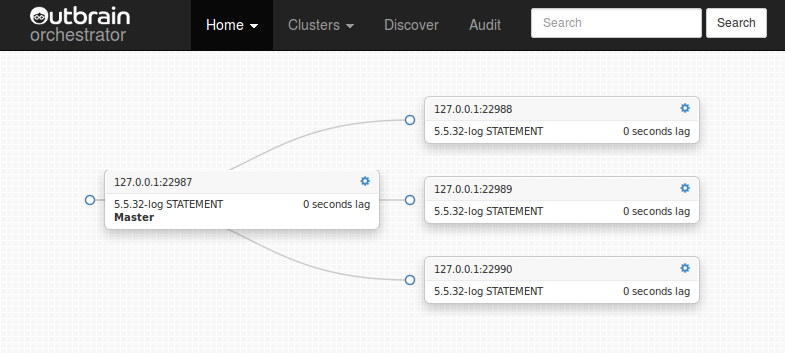orchestrator alternatives and similar packages
Based on the "Database" category.
Alternatively, view orchestrator alternatives based on common mentions on social networks and blogs.
-
tidb
TiDB is an open-source, cloud-native, distributed, MySQL-Compatible database for elastic scale and real-time analytics. Try AI-powered Chat2Query free at : https://tidbcloud.com/free-trial -
TinyGo
Go compiler for small places. Microcontrollers, WebAssembly (WASM/WASI), and command-line tools. Based on LLVM. -
groupcache
groupcache is a caching and cache-filling library, intended as a replacement for memcached in many cases. -
bytebase
The GitLab/GitHub for database DevOps. World's most advanced database DevOps and CI/CD for Developer, DBA and Platform Engineering teams. -
go-cache
An in-memory key:value store/cache (similar to Memcached) library for Go, suitable for single-machine applications. -
immudb
immudb - immutable database based on zero trust, SQL/Key-Value/Document model, tamperproof, data change history -
buntdb
BuntDB is an embeddable, in-memory key/value database for Go with custom indexing and geospatial support -
pREST
PostgreSQL ➕ REST, low-code, simplify and accelerate development, ⚡ instant, realtime, high-performance on any Postgres application, existing or new -
xo
Command line tool to generate idiomatic Go code for SQL databases supporting PostgreSQL, MySQL, SQLite, Oracle, and Microsoft SQL Server -
nutsdb
A simple, fast, embeddable, persistent key/value store written in pure Go. It supports fully serializable transactions and many data structures such as list, set, sorted set. -
gocraft/dbr (database records)
Additions to Go's database/sql for super fast performance and convenience. -
lotusdb
Most advanced key-value database written in Go, extremely fast, compatible with LSM tree and B+ tree.
InfluxDB - Power Real-Time Data Analytics at Scale

Do you think we are missing an alternative of orchestrator or a related project?
README
orchestrator upstream has moved
NOTE: orchestrator development is now active on https://github.com/github/orchestrator, where Issues and Pull Requests are accepted.
This repository is no longer the upstream and latest version of orchestrator.
The documentation in this repository is not up-to-date.
orchestrator [Manual]
Orchestrator is a MySQL replication topology management and visualization tool, allowing for:
Discovery
orchestrator actively crawls through your topologies and maps them. It reads basic MySQL info such as replication status and configuration.
It provides with slick visualization of your topologies, including replication problems, even in the face of failures.
Refactoring
orchestrator understands replication rules. It knows about binlog file:position, GTID, Pseudo GTID, Binlog Servers.
Refactoring replication topologies can be a matter of drag & drop a replica under another master. Moving slaves around becomes safe: orchestrator will reject an illegal refactoring attempt.
Find grained control is achieved by various command line options.
Recovery
Orchestrator uses a holistic approach to detect master and intermediate master failures. Based on information gained from the topology itself, it recognizes a variety of failure scenarios.
Configurable, it may choose to perform automated recovery (or allow the user to choose type of manual recovery). Intermediate master recovery achieved internally to orchestrator. Master failover supported by pre/post failure hooks.
Recovery process utilizes orchestrator's understanding of the topology and of its ability to perform refactoring. It is based on state as opposed to configuration: orchestrator picks the best recovery method by investigating/evaluating the topology at the time of recovery itself.
The interface
Orchestrator supports:
- Command line interface (love your debug messages, take control of automated scripting)
- Web API (HTTP GET access)
- Web interface, a slick one.

More
- Auditing
- Supports Pseudo-GTID
- Datacenter/physical location awareness
- Maintenenace/downtime server states
- MySQL-Pool association
- Run as a service; orchestrator multi-service HA
- HTTP security/authentication methods
- When working with orchestrator-agent, seed new/corrupt instances
- More...
Read the Orchestrator Manual for comprehensive documentation.
Authored by Shlomi Noach at GitHub. Previously at Booking.com and Outbrain

